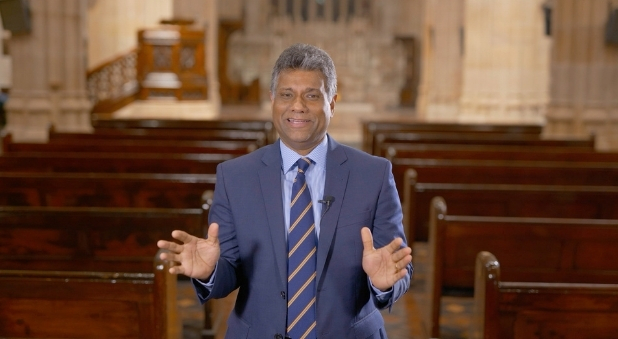I came to Australia as a child when my family migrated here from Canada. My sisters and I recently celebrated 50 years since our arrival, for which I give heartfelt thanks to God.
Of course, the thing that migrants want to do when they come to a new country is fit in. You want to “learn the country” as soon as you can so that you are accepted and welcomed.
For a 7-year-old Sri Lankan from the snow-bound climes of provincial Canada (another story!) that meant swapping ice hockey for cricket, peanut butter and jelly for vegemite, and Thanksgiving Day for Anzac Day. It meant “sidewalk”, “cookie” and “yard” became “footpath”, “biscuit” and “garden”. And it meant learning that a “chook” is a chicken, a “footy” is a ball and a “shout” is a treat.
We all want to know what other people think about us – our boss, our employees, our teachers, our colleagues, the parents at our kids’ schools, the other members of our club or church. We all want to know what other people think about us. And we like to know that we are accepted.
Now, why is this? Why is it the case that so much of ordinary life is shaped by our desire to be approved?
From the perspective of the Bible, beneath our quest for acceptance from each other is something deeper – something that goes back to the beginning of humanity. There is a dislocation in human life. We have been separated from our source and that has left us with a deep uncertainty about our place, about our value, about our purpose.
Jesus tells a story about a subject that is close to our heart – being accepted.
“Two men went up to the temple to pray, one a Pharisee and the other a tax collector. The Pharisee stood by himself and prayed: ‘God, I thank you that I am not like other people – robbers, evildoers, adulterers – or even like this tax collector. I fast twice a week and give a tenth of all I get’.
“But the tax collector stood at a distance. He would not even look up to heaven, but beat his breast and said, ‘God, have mercy on me, a sinner’.
“I tell you that this man, rather than the other, went home justified before God.”
(Luke 18:10-14a)
It’s a story about who God accepts.
When Jesus says, “this man, rather than the other” he does mean that the Pharisee is rejected. And the Pharisee is a good man. There is nothing here to suggest that he is a hypocrite. But at the end of his prayer, it is the other man, and not this man, who is at peace with God – who has been accepted by God.
To understand why, let’s think about the man whom God accepted.
Jesus says that God accepted the tax collector. The tax collector was the worst kind of criminal (in the ancient world, that is!). He was a criminal with the backing of the powers that be – an authorised thug, like a corrupt police commissioner or the minister of state who is also the brother of the President for Life.
He's as rotten as they come. He dares enter the temple of God and merely confesses to his wickedness and, Jesus says, God accepts him.
The good man who is rejected thanks God for the goodness God has put into his life. The wicked man who is accepted acknowledges that he is a sinner and asks for mercy.
The good man looks down on others and judges himself good, so he does not ask God for anything. The wicked man dare not look to heaven, so conscious is he of his sin, and he throws himself on God’s mercy. That is the difference between the two men.
The Pharisee, like those to whom Jesus is speaking, “looked down on everyone else” (v9) and persuaded himself that he was good when in reality he was simply not as bad as some. But the tax collector, conscious of his own failing and weakness, knows he has nothing to stand on. Unless God has mercy on him. He knows what is true for everyone: acceptance by God always depends on God’s mercy.
The good man sees the difference between himself and the tax collector – and there is a great difference between them – but he does not see how they are the same. They both need God’s mercy.
The Cross of Jesus casts its shadow back over this parable. The wicked man is able to receive mercy because God’s mercy was poured out when Jesus died on the Cross, in our place, for our sins.
The bulls that were sacrificed in the Temple, where the men had come to pray, were just a symbol for the real thing. But when Jesus came he offered his sinless life on the Cross in place of our sinful lives. He took what we deserved so that we could have what we do not deserve – mercy, forgiveness, peace with God.
There is mercy in the death that Jesus dies and there is eternity in the resurrection that Jesus wins. God will welcome all who look away from themselves and look to Jesus.






















